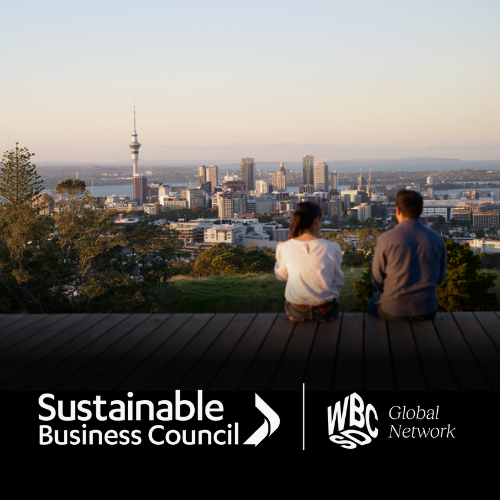Abbie Reynolds reports back from day three of the UN High-Level Political Forum on the Sustainable Development Goals being held in New York 15 – 17 July 2019.
Kia ora koutou. Today was the big day for me at the United Nations High-level Political Forum. Today New Zealand presented its Voluntary National Report back on how we’re doing against the Sustainable Development Goals and I was part of a team of three who presented that orally to the UN. It was a very short presentation and you’re able to see that online. So I won’t go into that.
I have had a question on Twitter actually about what we got asked about by other nations and I thought that was worth giving you a little bit of a sense of. So quite a few messages of congratulations, Indonesia in particular asked us about transformation and what the government was going to be doing to help transform our economy.
Canada were really interested in our Living Standards Framework and what we’re doing with our Wellbeing Budget and it sounds like they’re going on a fairly similar journey.
Papua New Guinea wanted to congratulate us for the work that we do with them, which was really lovely to hear.
We had a couple of questions from the NGO floor and one was particularly related to rural woman and midwifery in the South Island and the other question we got was from NGOs asking about participation of the not for profit sector and the SDGs and in creating a shared framework.
The side event I went to today that I particularly enjoyed was held at Bloomberg. The thing they were talking about particularly today was Bloomberg Intelligence and Bloomberg Terminals. They provide a whole bunch of the data that investors and businesses use to understand how businesses are performing financially.
What we were hearing about today is Bloomberg also provide information about how businesses are performing on ESG – environmental, social and governance – and this last year or even more recently than that, they’ve started doing analysis on how businesses are performing against the SDGs. So that was a very interesting insight.
One of the things I talk to members about is the fact that we’re starting to see capital move towards more sustainable projects or sustainable business. What we got to see today with Bloomberg is that that is a true statement that the trend and investment and the STGs alone has been massive over the last two years. So really nice to be able to back up what we hear anecdotally is happening with real data from Bloomberg.
I also got the opportunity to play with the Bloomberg terminal and it’s made me very curious about how many New Zealand businesses have access to this because there’s such a wealth of data in there about how our businesses are doing. But I looked into a few of the businesses I think I know reasonably well from this work and I was quite surprised how they were performing and whether they were being regarded as improving or getting worse from an ESG disclosure point of view.
So if you are a listed New Zealand business, I strongly encourage you to make sure you know what Bloomberg terminals have in terms of information about you and how you are performing from an ESG and SDG point of view, particularly if that’s part of how you are talking to investors. It’s very interesting. First thing this morning I went to a side event which was Chief Sustainability Officers for the SDGs and that was a World Business Council for Sustainable Development event.
I always really enjoy those because it’s great to hear what the really big global multinational businesses are doing like Nestle or Cemex, which is a cement company. And I was really interested to hear what they were saying but a bit surprised by how little of it was new news. Again, I said this in my last report back. I keep hoping I will come to other parts of the world and there’ll be some form of silver bullet which I can bring back and talk to you guys about. And it turns out there just isn’t. We face the same challenges in embedding the SDGs, we’re working on the same things, the future of work is coming up, climate change, measuring emissions, really thinking about how we embed purpose. There’s a fair bit of talk about shared value here, and a lot of businesses who use that as the model so I always think that that’s pretty interesting as well.

